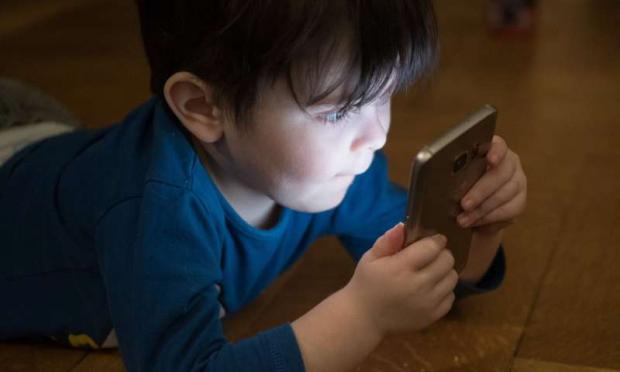
Breaking News
 Sunday FULL SHOW: Newly Released & Verified Epstein Files Confirm Globalists Engaged...
Sunday FULL SHOW: Newly Released & Verified Epstein Files Confirm Globalists Engaged...
 Fans Bash Bad Bunny's 'Boring' Super Bowl Halftime Show, Slam Spanish Language Performan
Fans Bash Bad Bunny's 'Boring' Super Bowl Halftime Show, Slam Spanish Language Performan
 Trump Admin Refuses To Comply With Immigration Court Order
Trump Admin Refuses To Comply With Immigration Court Order
 U.S. Government Takes Control of $400M in Bitcoin, Assets Tied to Helix Mixer
U.S. Government Takes Control of $400M in Bitcoin, Assets Tied to Helix Mixer
Top Tech News
 SpaceX Authorized to Increase High Speed Internet Download Speeds 5X Through 2026
SpaceX Authorized to Increase High Speed Internet Download Speeds 5X Through 2026
 Space AI is the Key to the Technological Singularity
Space AI is the Key to the Technological Singularity
 Velocitor X-1 eVTOL could be beating the traffic in just a year
Velocitor X-1 eVTOL could be beating the traffic in just a year
 Starlink smasher? China claims world's best high-powered microwave weapon
Starlink smasher? China claims world's best high-powered microwave weapon
 Wood scraps turn 'useless' desert sand into concrete
Wood scraps turn 'useless' desert sand into concrete
 Let's Do a Detailed Review of Zorin -- Is This Good for Ex-Windows Users?
Let's Do a Detailed Review of Zorin -- Is This Good for Ex-Windows Users?
 The World's First Sodium-Ion Battery EV Is A Winter Range Monster
The World's First Sodium-Ion Battery EV Is A Winter Range Monster
 China's CATL 5C Battery Breakthrough will Make Most Combustion Engine Vehicles OBSOLETE
China's CATL 5C Battery Breakthrough will Make Most Combustion Engine Vehicles OBSOLETE
 Study Shows Vaporizing E-Waste Makes it Easy to Recover Precious Metals at 13-Times Lower Costs
Study Shows Vaporizing E-Waste Makes it Easy to Recover Precious Metals at 13-Times Lower Costs
New Research Shows What Too Much Screen Time Does To Developing Brains

Within the past decade or so, the way we live our lives has drastically changed for many of us. Screens (smartphones, tablets, computers, televisions) have become such integral parts of our lives that we don't even notice how much of our attention has been given to these devices. By default, children are exposed to more screen time as well and the implications of this are finally coming to the surface. New research shows how more than two hours of screen time per day can harm the structural integrity of white matter in the brains of preschoolers, potentially harming the development of their language and literacy skills.
Please understand — the intention of sharing this information is not to shame, judge or point the finger at any parents. I understand that parenting is difficult and stressful and that sometimes putting on a cartoon or letting them play a game is what it takes in order to get any kind of break for yourself. This is simply meant to raise awareness about an issue in hopes of mitigating the harmful effects.
The American Academy of Pediatrics (AAP) recommends limiting the use for 2-5 year olds to a maximum of one hour a day of what they consider "high quality programming" and ideally, watching it with them to assist them in learning and digesting the new information.
Any more than this amount of time has the potential to harm the brain development of children, according to a study conducted by researchers from the Cincinnati Children's Hospital Medical Center. Those children with more screen time exposure had "lower micro-structural integrity" of brain white matter, an area that is linked to language and cognitive function.
The Study
During the study, which involved 47 children between the ages of 3 and 5, a technology called ScreenQ was used to track screen time in accordance with AAP recommendations. Factors studied included access to screens, frequency and duration of use, what sort of content was viewed and whether or not an adult was present during the viewing, and if the content was discussed with the child or not.
The higher the ScreenQ score, the more screen time occurred. MRI scans were used to evaluate the brain's of the children. It was revealed that more screen time was harmful to the white matter in their brains.
"While we can't yet determine whether screen time causes these structural changes or implies long-term neurodevelopmental risks," Dr. John Hutton, director of the Reading & Literacy Discovery Center at Cincinnati Children's and lead study author said in a news release, "these findings warrant further study to understand what they mean and how to set appropriate limits on technology use."
Screen time is especially harmful for children under two and the AAP recommends that the use of digital media be avoided altogether, with the exception of occasional video chatting.
Avoid Or Limit Screen Time For Children's Health
Keep in mind that if these screens are harmful to your children's health, chances are they are impacting yours as well. Children learn by example, they like to copy what their parents and other adults do. If you are constantly on your phone or in front of the television, then your children might feel more inclined to imitate what you do. If they see you reading a book, getting outside and staying active, then they are more likely to develop those habits for themselves.

 Smart dust technology...
Smart dust technology...

